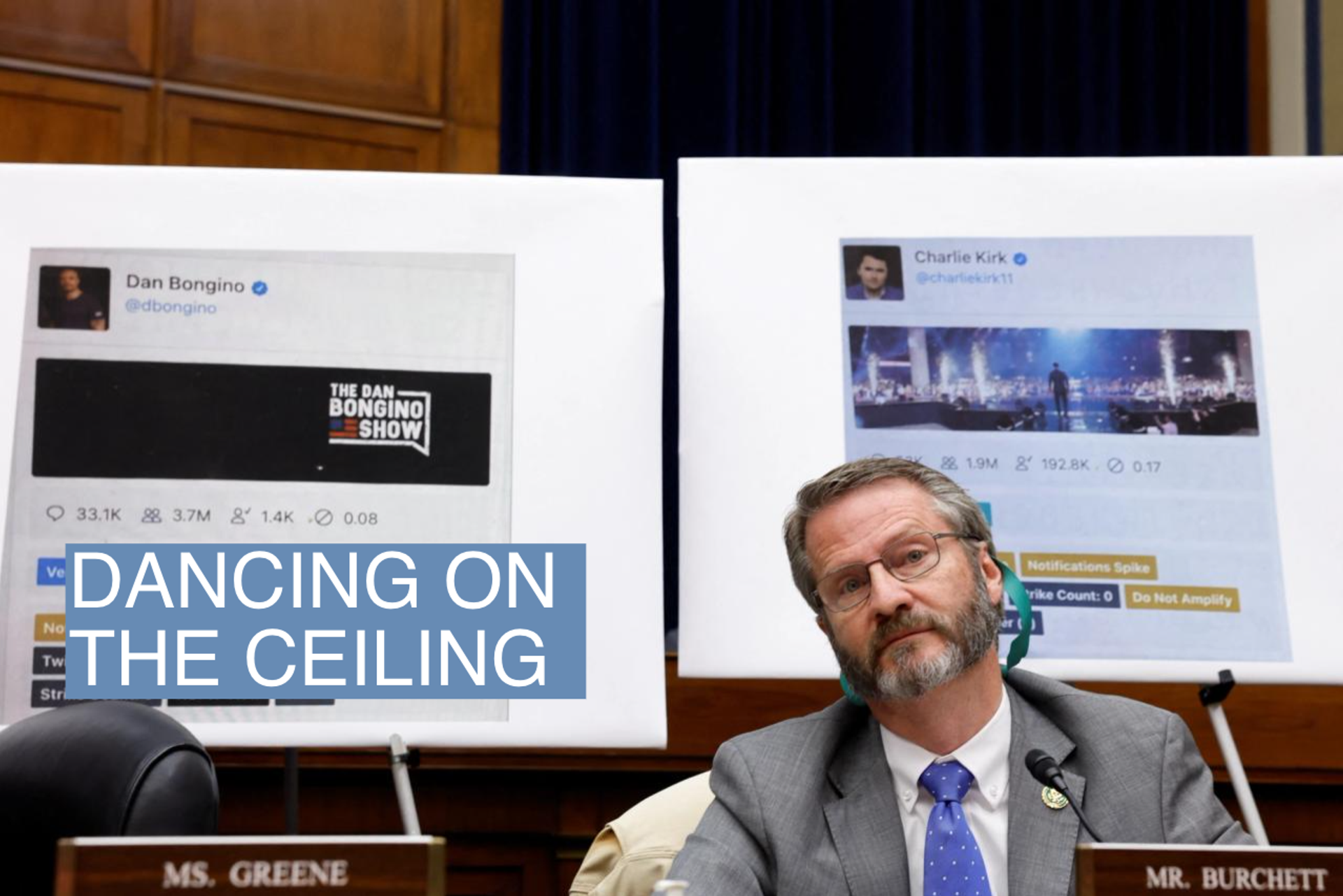The News

Put down Rep. Tim Burchett, R-Tenn. as a hard “no” on lifting the debt ceiling later this year.
The Congressman told Semafor in a Wednesday phone interview that he doesn’t see a circumstance in which he casts a vote to reauthorize the US’s ability to repay its bills. He’s opposed raising it since first elected to the House in 2018.
“I’ve made commitments and I’ve run on fiscal responsibility,” Burchett said. “I didn’t fold the last time under Trump and I don’t expect to fold under Biden.”
To be clear, this isn’t a tossed-off gotcha or an answer based on a misheard question about government shutdowns versus default. He gave similar comments to CNN, and Semafor asked and re-asked and texted again after the interview to clarify his position. He’s a no, full stop.
In this article:
Joseph’s view
Burchett’s resistance to raising the debt ceiling at all would further complicate the delicate math for House Speaker Kevin McCarthy.
The California Republican can spare only four defections from his ranks as he tries assembling a bill capable of drawing 218 votes from Republicans hailing from both ruby-red districts and those President Biden carried. If he can’t show he can deliver the votes, it could compromise his leverage in talks. Democrats have already challenged him to prove he has the support to pass a proposal of any kind without their help.
McCarthy’s margin of error might get even slimmer. Axios reported on Thursday that 16 House Republicans have never voted to raise the debt limit, although none besides Burchett have publicly ruled it out so far. Burchett said he isn’t concerned that McCarthy will turn to Democrats for votes on a debt ceiling increase, even if fiscal conservatives start causing headaches for House GOP leaders. McCarthy’s office didn’t respond to a request for comment.
The Bipartisan Policy Center recently projected that the US would hit the so-called “X-date” for default in the “summer or early fall,” depending on the ebb and flow of tax payments to the Treasury. The possible consequences of a default are enormous, ranging from a meltdown in global financial markets to an instant stop in military pay and Social Security checks to seniors.
“It would be extraordinarily destructive for the economy and for people and businesses,” Brian Riedl, a conservative budget expert briefing Hill Republicans on the debt ceiling, told Semafor. “It’s just not a plausible way to go about reining in government.”
Burchett, however, said he doesn’t distinguish between a default and a government shutdown, viewing them as essentially one and the same. He argues a debt ceiling breach would essentially force the US to instantly balance the budget by prioritizing the most important federal programs.
“We just tell the world we’ve reached a limit,” Burchett said. “The consequences, of course, are shutting the government down. That’s what we’re up against.”
Even as he prepares to reject raising the debt limit, Burchett is offering some pointers to the Republicans whose votes are up for grabs. He believes that McCarthy’s pledge to keep Social Security and Medicare off the negotiating table should be extended to Medicaid, even as other conservatives target the program for spending cuts.
Instead, he’d rather pursue bureaucratic waste in the growing defense budget. “I mean the Pentagon, places like that — they had their last audit, there was over a billion dollars that was unaccounted for. In what shape, form or fashion is that legit?” Burchett said.
Room for Disagreement
Republicans working with McCarthy on budget talks, including some hardline conservatives who initially opposed his speakership and voted against prior debt ceiling increases, told CNN that things were going well so far. “To his credit, Kevin has done a good job of getting us all together and getting us on the same page,” Rep. Ralph Norman, R-S.C. said.
Notable
- FiveThirtyEight’s Geoffrey Skelley mapped out which Republicans in either chamber are the likeliest to vote for a debt ceiling hike in the coming months. “About 3 in 5 Republicans currently in Congress have at some point voted for a deal that included a debt ceiling increase. So even though Republicans have been less likely than Democrats to back legislation that included raising or suspending the debt ceiling, some are still willing to do so,” he writes.